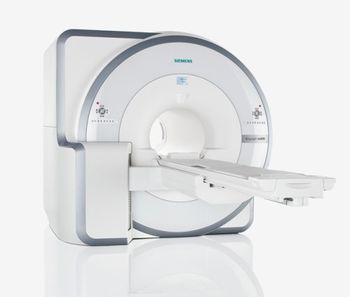
Too many CT scans are still performed on children complaining of headaches.

Too many CT scans are still performed on children complaining of headaches.

Many more pulmonary emboli are being detected since the introduction of CT angiography, but the death rate has not decreased.

CT angiogram monitoring of patients with cerebral aneurysms helps identify if and when the aneurysms grow, increasing the risk of rupture.

MRI may replace conditional CT for appendicitis detection in adults because of its similar accuracy rate.

Nuclear medicine and MR technologists recommend regulations around education, certification and staffing for the new hybrid technology.

PET images may help determine which patients with major depression will respond best to medication or to cognitive behavior therapy.

PET imaging aids researchers in search for anti-nicotine vaccine, but shows there is still a lot of work to do.

CMS has agreed to cover three oncology FDG-PET scans, a revision from the proposed single-scan coverage, and one PET advocates lauded.

The institutions that adopted PET/MRI after its 2011 approval reflect on the changes in workflow and protocol, and the utility and future of the new technology. This is the first in a two-part series.

SPECT/MR debuted this week at the SNMMI annual meeting as a new preclinical hybrid molecular imaging system with promises of higher resolution and lower dose.

Children’s risk from radiation exposure from CT scans drops significantly when dose from the highest-dose exams is lowered and unnecessary exams eliminated.

Contrast media with CT significantly increased radiation dose, so number and timing of contrast-enhanced scans should be optimized when setting protocols.

Experts may consider new guidelines for virtual colonoscopy, or CT colonography, screening after study shows women can be screened later than men.

PET images show why education can help people cope with the effects of Alzheimer’s disease in its early stages.

Patients with acute diverticulitis diagnosed by contrast-enhanced CT may benefit from early colonoscopies for colon cancer screening.

Digital chest tomosynthesis used as a screening tool for lung cancer shows comparable rates of detection to low-dose CT.

Study confirms earlier findings that low-dose CT detects more lung cancer than chest X-rays and lowers mortality from lung cancer.

CT scans performed on children and adolescents may contribute to a slightly elevated risk cancer over the following 10 years.

Rapid CT programs may lead to faster diagnoses, but some say they may not be appropriate for all trauma patients and could unnecessarily increase radiation risk.

VIDEO: Reimbursement for CT colonography has been a complicated path, but radiologists shouldn’t wait to pursue local coverage and set up a screening program, said Perry Pickhardt, MD.

Use of 18F-FDG PET/CT may help detect advanced disease in patients with ulcerative colitis or Crohn’s disease.

Computed tomographic colonography in patients symptomatic of colorectal cancer resulted in a significantly higher rate of additional colonic investigation.

Computed tomographic colonography (CTC), or virtual colonoscopy, was more sensitive than barium enema in detecting colorectal cancer and large polyps.

Lumbar spine CT radiation doses were lowered by 41 percent and still delivered diagnostic quality images.

Abdominal CT scans that include the lumbar spine but that are performed for other purposes may help identify patients with osteoporosis.